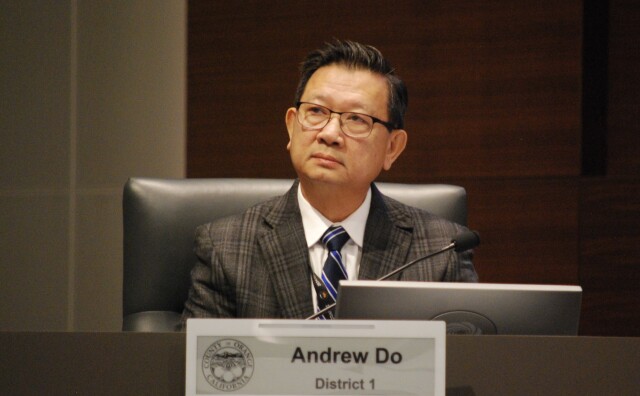California budgeted $157 billion dollars this past fiscal year to provide health care for low-income residents. It provides that care through a program called Medi-Cal, which is funded by a combination of state and matching federal funds. The services covered serve about 15 million low-income Californians.
The program is an important safety net but as health-care costs balloon the state has sought to find other sources of funding besides general fund monies.
Since 2009, a Managed Care Organization Provider Tax has raised revenue off of the health-care management companies that provide the bulk of Medi-Cal services. The tax generates billions of dollars each year and increases the amount of federal matching funds that come to state coffers to pay for Medi-Cal. The tax has been approved by the state legislature repeatedly, and the current renewal expires in 2026.
Proposition 35 on the November ballot would make that tax permanent and create dedicated funding for some Medi-Cal services.
Official title on the ballot: Proposition 35: Provides Permanent Funding for Medi-Cal Health Care Services. Initiative Statute
You are being asked: Should California make permanent an existing tax on managed health care insurance plans and limit how that money is spent?
-
A "yes" vote means: A “yes” vote means you support making permanent a California tax on managed care organizations that would otherwise expire in 2026, and change some Medi-Cal funding allocations.
-
A "no" vote means: A “no” vote would mean you oppose making the tax permanent and/or carrying out the funding changes.
Understanding Prop. 35
Medi-Cal is the name for California’s Medicaid program. It provides affordable health care for low-income people by reimbursing health care providers with a mix of state and federal funds.
Many hospitals serve indigent and low-income populations that can pay very little or nothing at all for the health care they receive. Hospitals must absorb those costs.
Make It Make Sense: Election 2024 Edition
The Managed Care Organization Provider tax exists to close that gap. Prop. 35 would continue the tax but also direct more money from that tax specifically into Medi-Cal, which means more money for providers and less money for the state's general fund.
“You're using that tax to draw down federal dollars that will increase the budget, allow you to pay the plans higher premiums to take care of the Medi-Cal population, and then those plans are supposed to take those premiums and pay better reimbursement, down to the providers and their network,” and that improves health care for low-income residents, said Dylan Roby, a professor of health, society, and behavior at UC Irvine.
-
City of Los Angeles
- City Council: Vote for districts 2, 10 and 14.
- Charter Amendment ER: A package of ethics reforms designed to fight corruption at City Hall. Plus: Charter Amendments DD, FF, HH and II.
L.A. County
- Board of Supervisors: Measure G would dramatically overhaul county government.
- District Attorney: Criminal justice reform, or more law-and-order justice?
- LA Unified school board: Voters are also deciding on a $9 billion facilities bond and a redistricting measure.
- School district measures: Schools have a lot of repair needs.
- Superior Court judges: Plus: Tips to make sure you're putting right person on the bench.
Statewide races
- Whoa! There are 10 propositions on the ballot. Here's your cheat sheet to Props. 2, 3, 4, 5, 6, 32, 33, 34, 35 and 36.
Jump to the full Voter Game Plan for dozens more races ▶
The history behind it
Prop. 35 supporters say care for the most vulnerable state residents, such as low-income children and seniors, is underfunded.
The costs of medical services are increasing while California has recently expanded who is eligible to use Medi-Cal. Higher unemployment has led to more people enrolling in Medi-Cal services. This kind of situation was seen during the 2020 COVID-19 pandemic.
There is no co-pay, premium, or out-of-pocket expense for people who qualify for and sign up for Medi-Cal.
Prop. 35 would increase funding for services like behavioral health facilities, outpatient facilities, and some hospital services.
How it would work
The tax is set to expire in 2026. Prop. 35 would make the tax permanent and dedicate more money from that tax to Medi-Cal. It would also include a four-year temporary increase to the state limit of health spending by the size of the health plan tax.
If Prop. 35 fails in the November election, California legislators and the Governor would have to go through the political process of seeking the tax’s renewal after it expires. People who spoke to LAist for this guide said they believe lawmakers would find a way to renew the tax.
Cram session
During AirTalk's Ballot Cram Session live event, Larry Mantle talked with Caltech's Michael Alvarez, Pomona College's Sara Sadhwani and Claremont McKenna College's Zachary Courser about Proposition 35.
What people who support it say
The measure’s supporters argue that the high cost of publicly funded health care reimbursement for low-income people leads the state to spend a lot of money to fill the gap not covered by federal funds.
“This is not a quick fix problem,” said Tony Sinay, professor of public health at California State University, Los Angeles.
Prop. 35 supporters say the measure’s changes would improve health care for low-income residents.
“Voters should know this is a generational opportunity to really invest in our Medicaid system in California that will ensure better access to patients across California,” said Jodi Hicks, president and CEO of Planned Parenthood Affiliates of California and co-chair of the Yes on 35 campaign.
Prop. 35 supporters say it’s also OK to create dedicated funding streams because health care should be a long-term public priority.
“This funding mechanism is always supposed to be put back into health care. So these are health-care dollars. That should be spent in health care,” said Prop. 35 supporter Hicks.
There’s a long list of supporters. The California Medical Association, California Hospital Association, California Academy of Family Physicians are among the measure’s backers.
What people who oppose it say
As of publication, there has been no spending in opposition to Prop. 35. But there are detractors.
“I certainly think our healthcare system has problems in California, and there are areas for improvement, but I don't necessarily think that Prop. 35 addresses those problems,” UC Irvine’s Roby said.
Prop. 35 is another example of ballot box budgeting, he said — a term to describe a state measure that locks up spending and takes flexibility away from legislators during the budget cycle. That’s Governor Gavin Newsom’s objection to Prop. 35, as well.
Anti-tax activists are also against Prop. 35.
“Everyone likes health-care services,” said Carl DeMaio, the conservative activist and State Assembly candidate, via his YouTube platform.
“It’s a bait-and-switch type tax increase … you’re going to have to pay more in federal taxes,” he predicted.
Potential financial impact
A federal tax hike is not predicted by the Legislative Analyst’s office.
There are costs. The independent analysis by the Legislative Analyst’s Office expects Prop. 35 to raise about $4 billion more each year for Medi-Cal, about half of that coming from Prop. 35 and the other half from federal funds. The Legislative Analyst also says there are short-term costs to the state of $1 billion to $2 billion in each of the years 2025 and 2026.
Follow the money
Listen in: AirTalk takes on Prop. 35
Here's our recent AirTalk segment on Prop. 35. To advocate for the bill is Jodi Hicks, president and CEO of Planned Parenthood Affiliates of California, which is part of the “Yes on 35” coalition. To advocate against it is Kiran Savage-Sangwan, executive director of the California Pan-Ethnic Health Network, a statewide health advocacy organization that officially opposes Prop 35.
Before you read more, we wanted to take a moment to tell you about our mission here at LAist, and why we're so dedicated to helping you get ready to vote.
In the lead-up to this important election, our hard-working reporters and editors spent hundreds and hundreds of hours researching and writing these detailed guides and fact-based resources. We invested that time because we're here to help you vote confidently and make your community a better place.
But we cannot do this essential work without your help. We rely on donations from readers like you to stay independent, which keeps our nonprofit newsroom strong and accountable to you.
At a time when the need for local journalism has never been greater, many newsrooms are facing cutbacks, including LAist. Member support — your support — is what will sustain a free press in Southern California.
LAist’s mission is to be here for you, so please be here for us now with a donation to power our trusted local reporting. Step up right now and make the choice to give. Because that’s exactly what it is — a choice. It's choice with consequences. If readers do not choose to step up and donate, the future of fact-based news in Southern California will not be as strong.
No matter what happens in the world, LAist will remain a voice you know and trust.
Thank you for your generous support.
Sincerely,
-
(she/her)

This voter guide originally published Sept. 26.








